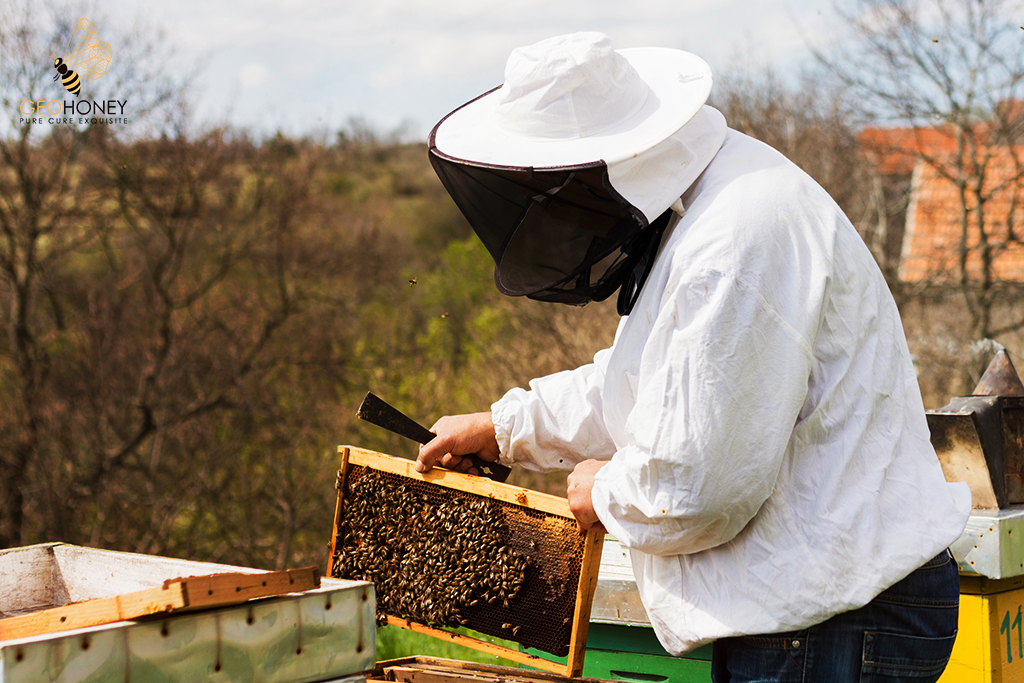- Tokyo: 09:44
- Singapore: 08:44
- Dubai: 04:44
- London: 00:44
- New York: 19:44
The Coronavirus lockdown: A threat to beekeepers in China

Bees account for 90% of the pollination of the food eaten across the world. After the breakout of the Coronavirus, traffic restrictions are preventing commercial apiarists from moving hives depriving bee colonies of sustenance. Traffic bans imposed to stop the coronavirus epidemic has put the livelihood of beekeepers in danger. It is that time of the year when Chinese beekeepers migrate towards fields for their bees to pollinate with the blossoming crops, but the coronavirus lockdowns are resulting in their hives to starve and die. Geohoney finds out how beekeepers are dealing with this issue.
Beekeepers are always on the go, always on the lookout on what their hives can feed on, but with the roads blocked, and no flowers to feed on, the bees won’t be able to survive. Amidst the tight restrictions on travel across the country, the 300,000 beekeepers are finding it difficult to keep up with business. Understanding the whole dynamism of the situation shows that, it’s not just the bees that are at threat of losing out on feed, but also the crops that depend on bees for pollination. Geohoney brings to mind that both the quality and production of food would be low without the honey bee.
A recent suicide by a beekeeper in Sichuan prompted the Apicultural Science Association of China to keep at bay all the insecurities in this industry. It stated at this moment in the national fight against the coronavirus, beekeepers must stay calm and value their own lives first. It’s a tough blow to an industry that is already suffering from the climate change crisis. Hoping that the Corona outbreak will come under control soon, beekeepers look forward to the flowering season fast approaching in May.




Bees too, hmmm, corona seems to be affecting many spheres in life. I personally did not know bees played such an important role in our lives. It’s tough to digest that apiaries are finding it difficult to feed them.